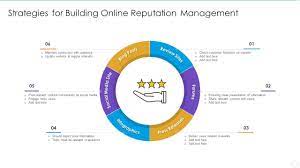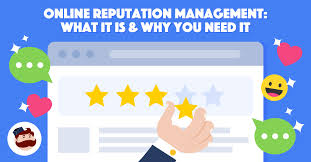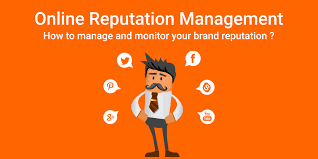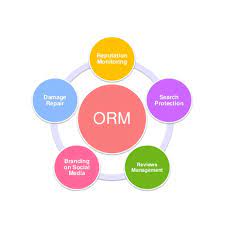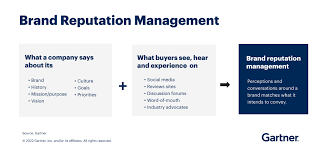Brand Reputation Management: Building Trust and Success
In today’s interconnected world, where information spreads rapidly, brand reputation management has become a critical aspect of business success. A company’s reputation can make or break its standing in the market, influencing consumer perception, trust, and loyalty. Hence, it is essential for businesses to proactively manage their brand reputation to safeguard their image and ensure long-term success.
What is Brand Reputation Management?
Brand reputation management refers to the strategies and practices employed by businesses to shape public perception of their brand. It involves monitoring and influencing how a company is perceived by its target audience, stakeholders, and the general public. Effective reputation management focuses on building a positive image, mitigating negative publicity, and handling crises in a transparent and proactive manner.
Why Does Brand Reputation Matter?
A strong brand reputation is invaluable for several reasons:
Consumer Trust: Consumers are more likely to engage with brands they trust. A positive reputation builds trust among consumers, increasing their confidence in the company’s products or services.
Competitive Advantage: A good reputation sets a brand apart from its competitors. It helps attract new customers while retaining existing ones who value the reliability and credibility associated with the brand.
Employee Engagement: A positive brand reputation not only attracts customers but also attracts top talent. Employees feel proud to be associated with reputable companies, leading to higher employee satisfaction and engagement.
Crisis Resilience: Companies with a robust reputation are better equipped to handle crises effectively. By establishing goodwill beforehand, they can navigate challenging situations more smoothly and regain trust more quickly.
Strategies for Effective Brand Reputation Management:
Monitor Online Presence: Regularly monitor online platforms such as social media channels, review sites, forums, and news outlets to stay informed about conversations surrounding your brand. Address any negative feedback promptly and engage with customers openly.
Proactive Communication: Be transparent in your communication with stakeholders. Keep them informed about company updates, product launches, and any potential issues. Proactively share positive stories and achievements to reinforce a positive image.
Deliver on Promises: Consistently deliver high-quality products, exceptional customer service, and uphold ethical business practices. Meeting or exceeding customer expectations builds trust and enhances your reputation.
Engage with Customers: Actively engage with your customers by responding to their queries, comments, and feedback. Show genuine interest in their concerns and use their insights to improve your products or services.
Crisis Preparedness: Develop a crisis management plan that outlines how your company will handle potential crises. This includes establishing clear communication protocols, training key personnel, and having a plan for swift response and resolution.
Build Thought Leadership: Position yourself as an industry expert by sharing valuable insights through thought leadership content such as blog posts, articles, webinars, or speaking engagements. Establishing yourself as a reliable source of information enhances your brand’s reputation.
Monitor Competitors: Keep an eye on your competitors’ reputation management strategies to identify best practices or potential risks that may impact your brand’s standing in the market.
Remember that building a strong brand reputation takes time and consistent effort. It requires aligning business values with customer expectations while maintaining open lines of communication throughout the journey.
In conclusion, brand reputation management is not just about protecting your brand from negative publicity; it’s about actively shaping how others perceive you. By investing in reputation management strategies, businesses can build trust, differentiate themselves from competitors, attract customers and talent, and ultimately achieve long-term success in today’s competitive marketplace.
7 Essential FAQs on Brand Reputation Management: A Comprehensive Guide for UK Businesses
- What is brand reputation management?
- How can I improve my brand’s reputation?
- How do I measure my brand’s reputation?
- What tools are available for managing my brand’s reputation?
- How can I protect my brand from negative publicity?
- What strategies should I use for managing my brand’s online presence?
- How can I respond to negative feedback about my brand online?
What is brand reputation management?
Brand reputation management refers to the strategies and practices employed by businesses to shape and control the public perception of their brand. It involves actively monitoring, influencing, and managing how a company is perceived by its target audience, stakeholders, and the general public. The goal of brand reputation management is to build a positive image, maintain credibility, mitigate negative publicity, and handle crises effectively.
This process includes various activities such as monitoring online platforms for mentions of the brand, engaging with customers and stakeholders through transparent communication, delivering on promises to build trust, proactively addressing any negative feedback or issues that may arise, and positioning the brand as a thought leader in its industry.
Brand reputation management is crucial because a strong reputation can enhance consumer trust, attract new customers, differentiate a brand from competitors, increase employee engagement and satisfaction, and provide resilience during times of crisis. By actively managing their reputation, businesses can safeguard their image and ensure long-term success in today’s interconnected world where information spreads rapidly.
How can I improve my brand’s reputation?
Improving your brand’s reputation requires a thoughtful and proactive approach. Here are some strategies to consider:
- Understand Your Current Reputation: Start by assessing your brand’s current reputation. Monitor online platforms, social media channels, review sites, and other relevant sources to gauge how your brand is perceived. Identify any recurring issues or negative feedback that need to be addressed.
- Deliver on Promises: Consistently deliver high-quality products or services that meet or exceed customer expectations. Focus on providing exceptional customer experiences and resolving any issues promptly and effectively. By consistently delivering on your promises, you build trust and enhance your brand’s reputation.
- Engage with Your Customers: Actively engage with your customers by responding to their queries, comments, and feedback. Show genuine interest in their concerns and use their insights to improve your offerings. Engaging with customers demonstrates that you value their opinions and fosters a positive perception of your brand.
- Be Transparent: Transparency is crucial for building trust with your audience. Be open about your business practices, policies, and values. Communicate openly about any changes or updates within your organization. This transparency helps establish credibility and enhances your brand’s reputation.
- Monitor Online Presence: Regularly monitor online platforms to stay informed about conversations surrounding your brand. Address any negative feedback promptly and professionally, providing solutions or explanations where necessary. Engage in constructive dialogue with customers to resolve issues publicly whenever possible.
- Proactive Communication: Keep stakeholders informed about company updates, product launches, or any potential issues that may arise. Proactively share positive stories, achievements, or community involvement initiatives related to your brand. This proactive communication helps shape a positive image of your brand.
- Build Relationships with Influencers: Collaborate with industry influencers who align with your brand values and target audience. Their endorsement can help boost credibility and expand the reach of positive messaging about your brand.
- Monitor Competitors: Keep an eye on your competitors’ reputation management strategies to identify best practices or potential risks that may impact your brand’s standing. Learn from their successes and failures to refine your own approach.
- Address Negative Feedback: When faced with negative feedback or criticism, respond calmly and professionally. Acknowledge the concerns raised, apologize if necessary, and offer a solution or resolution. Handling negative feedback with empathy and transparency can turn a negative experience into a positive one.
- Continuously Improve: Regularly evaluate your brand’s performance and seek areas for improvement. Actively listen to customer feedback, conduct surveys, and analyze data to identify opportunities for enhancement. By continuously improving your offerings based on customer insights, you demonstrate a commitment to excellence and strengthen your reputation.
Remember that building and improving your brand’s reputation is an ongoing process that requires consistent effort and dedication. By prioritizing customer satisfaction, transparency, proactive communication, and continuous improvement, you can enhance your brand’s reputation over time.
How do I measure my brand’s reputation?
Measuring your brand’s reputation is crucial to understanding how it is perceived by your target audience and stakeholders. Here are some key metrics and methods you can use to assess and measure your brand’s reputation:
- Surveys and Feedback: Conducting surveys, both online and offline, can provide valuable insights into how your brand is perceived. Ask questions related to brand perception, customer satisfaction, trust, and overall reputation. Feedback forms, comment cards, or online review platforms can also help gather feedback from customers.
- Social Media Monitoring: Monitor social media platforms to gauge sentiment around your brand. Look for mentions, comments, shares, and reviews related to your products or services. Analyze the tone of these interactions—positive, negative, or neutral—to get a sense of how people perceive your brand.
- Online Reputation Management Tools: Utilize online reputation management tools that track mentions of your brand across various online channels. These tools provide sentiment analysis and help you understand the overall sentiment associated with your brand.
- Brand Awareness Metrics: Measure the level of awareness and recognition of your brand through metrics such as aided or unaided recall in consumer surveys or tracking studies. This will give you an indication of how well-known your brand is among your target audience.
- Customer Reviews and Ratings: Monitor customer reviews on platforms like Google Reviews, Yelp, Trustpilot, or industry-specific review sites. Analyze the ratings and feedback provided by customers to assess their satisfaction levels and identify areas for improvement.
- Media Coverage Analysis: Keep track of media coverage about your brand in newspapers, magazines, blogs, or online news portals. Analyze the tone and content of these articles to understand how the media portrays your brand.
- Employee Surveys: Engage with employees through surveys or focus groups to gauge their perception of the company’s reputation internally. Their views can provide insights into how well internal branding aligns with external perceptions.
- Competitor Analysis: Compare your brand’s reputation against your competitors. Analyze metrics such as market share, customer loyalty, customer satisfaction ratings, and online sentiment to understand how your brand stacks up in the industry.
- Brand Health Index: Develop a brand health index that incorporates various reputation-related metrics specific to your business. This index can be based on factors like brand awareness, customer satisfaction, trust, loyalty, and overall perception.
- Net Promoter Score (NPS): Use the NPS framework to measure customer loyalty and advocacy. By asking customers how likely they are to recommend your brand to others on a scale of 0-10, you can calculate an NPS score that reflects their perception of your brand.
Remember that measuring reputation is an ongoing process, and it’s essential to track these metrics consistently over time to identify trends and make informed decisions about managing and enhancing your brand’s reputation.
There are several tools available to help businesses manage their brand reputation effectively. Here are some popular ones:
- Social Media Monitoring Tools: These tools allow you to monitor social media platforms for mentions of your brand, products, or relevant keywords. They provide real-time alerts, sentiment analysis, and analytics to track conversations and engage with your audience promptly. Examples include Hootsuite, Sprout Social, and Brandwatch.
- Online Review Management Platforms: These tools help you monitor and respond to customer reviews across various review sites and directories. They centralize review management, enabling you to address feedback efficiently and maintain a positive online reputation. Examples include Trustpilot, Yotpo, and ReviewTrackers.
- Media Monitoring Services: These services track mentions of your brand in news articles, blogs, forums, and other online sources. They provide insights into media coverage and sentiment analysis, allowing you to stay informed about your brand’s public perception. Examples include Meltwater, Cision, and Mention.
- Online Reputation Management (ORM) Platforms: ORM platforms offer comprehensive solutions for monitoring and managing your brand’s online reputation across multiple channels. They provide features such as sentiment analysis, review management, social media monitoring, content creation tools, and reporting capabilities. Examples include Brand24, Reputation.com, and BirdEye.
- SEO Tools: Search engine optimization (SEO) plays a crucial role in managing your brand’s online presence. SEO tools help you optimize your website content for search engines, monitor keyword rankings related to your brand or industry, analyze competitor strategies, and identify opportunities for improvement. Examples include SEMrush, Moz Pro, and Ahrefs.
- Customer Relationship Management (CRM) Systems: CRM systems enable businesses to manage customer interactions effectively while maintaining a holistic view of customer relationships. By tracking customer interactions and preferences in one place, you can improve customer service delivery and address issues promptly to protect your brand’s reputation. Examples include Salesforce, HubSpot CRM, and Zoho CRM.
- Brand Monitoring Tools: These tools allow you to monitor brand mentions, hashtags, and keywords across various online platforms. They provide insights into brand sentiment, audience engagement, and competitor analysis. Examples include Google Alerts, Talkwalker Alerts, and Awario.
It’s important to choose tools that align with your specific needs and budget. Consider factors such as the size of your business, the platforms you want to monitor, the level of automation required, and the analytics capabilities provided by each tool. Remember that while these tools can be valuable in managing your brand reputation, they should be complemented by a proactive approach that includes human interaction and genuine engagement with your audience.
How can I protect my brand from negative publicity?
Protecting your brand from negative publicity is crucial for maintaining a positive reputation. Here are some strategies to help you safeguard your brand:
- Monitor Online Presence: Regularly monitor online platforms, including social media channels, review sites, forums, and news outlets. Use monitoring tools or engage the services of a reputation management company to stay informed about conversations surrounding your brand. This allows you to address any negative feedback or misinformation promptly.
- Respond Promptly and Professionally: When negative comments or reviews arise, respond in a timely and professional manner. Avoid getting defensive or engaging in arguments. Instead, acknowledge the concerns raised, offer a solution if possible, and demonstrate a willingness to resolve the issue privately.
- Encourage Positive Reviews: Actively encourage satisfied customers to leave positive reviews on relevant platforms. This helps counterbalance any negative feedback and showcases the positive experiences others have had with your brand.
- Provide Exceptional Customer Service: Deliver exceptional customer service at every touchpoint. Train your staff to handle customer inquiries and complaints with empathy and efficiency. By addressing issues promptly and effectively, you can prevent minor concerns from escalating into major problems.
- Be Transparent and Authentic: Transparency is key in building trust with your audience. Be open about your business practices, product information, pricing policies, and any potential limitations or challenges customers may face when using your products or services.
- Engage with Your Customers: Actively engage with customers on social media platforms by responding to their comments, questions, and concerns. Show genuine interest in their feedback and use it as an opportunity for improvement.
- Develop Positive Relationships with Influencers: Collaborate with influencers who align with your brand values to promote positive messages about your products or services. Their endorsement can help counteract any negative publicity that may arise.
- Build Brand Advocacy: Cultivate a community of loyal customers who become brand advocates by creating memorable experiences for them and rewarding their loyalty. Encourage them to share their positive experiences with others, both online and offline.
- Crisis Preparedness: Develop a comprehensive crisis management plan that outlines how your company will handle potential crises. This includes having a designated spokesperson, clear communication protocols, and predefined strategies for addressing different types of crises.
- Continuously Improve: Actively seek feedback from customers and use it to improve your products, services, and overall customer experience. By consistently delivering on your brand promises, you can prevent potential negative publicity.
Remember, protecting your brand reputation is an ongoing process. By staying vigilant, addressing issues promptly and professionally, and consistently delivering value to your customers, you can minimize the impact of negative publicity on your brand’s reputation.
What strategies should I use for managing my brand’s online presence?
Managing your brand’s online presence requires a proactive approach to monitor, engage, and shape the perception of your brand. Here are some effective strategies to consider:
- Monitor Online Conversations: Regularly monitor social media platforms, review sites, forums, and news outlets to stay informed about conversations related to your brand. Use monitoring tools or set up Google Alerts to receive notifications whenever your brand is mentioned.
- Respond to Feedback: Engage with customers by responding promptly and professionally to their comments, questions, and feedback. Address both positive and negative feedback in a timely manner, showing that you value customer opinions and are committed to resolving any issues.
- Provide Exceptional Customer Service: Deliver outstanding customer service across all online channels. Respond promptly to customer inquiries or complaints, offer solutions, and go the extra mile to exceed their expectations. Positive interactions can enhance your brand’s reputation.
- Encourage Positive Reviews: Actively encourage satisfied customers to leave positive reviews on relevant review platforms or social media channels. This helps build credibility and trust with potential customers who rely on reviews when making purchasing decisions.
- Create Engaging Content: Develop high-quality content that aligns with your brand values and resonates with your target audience. Share informative blog posts, videos, infographics, or podcasts that provide value and establish you as an authority in your industry.
- Utilize Social Media Platforms: Build a strong presence on social media platforms where your target audience is active. Regularly post engaging content, interact with followers through comments or direct messages, and participate in relevant industry conversations.
- Leverage Influencer Marketing: Collaborate with influencers who align with your brand values or have a strong following in your niche. Their endorsement can help increase brand visibility and credibility among their loyal followers.
- Implement SEO Strategies: Optimize your website content using relevant keywords related to your industry or products/services you offer. This helps improve search engine rankings, making it easier for potential customers to find your brand online.
- Monitor and Manage Online Reviews: Regularly monitor and respond to online reviews, both positive and negative. Address any concerns or issues raised by customers in a timely and professional manner. This demonstrates your commitment to customer satisfaction.
- Stay Authentic and Transparent: Be genuine in your online interactions, maintaining a consistent brand voice across all channels. Transparency is key, especially during challenging times or when addressing any potential issues. Openly communicate with your audience to maintain trust.
Remember that consistency is crucial when managing your brand’s online presence. Regularly review and adapt your strategies based on feedback, analytics, and industry trends to ensure you are effectively reaching and engaging with your target audience.
How can I respond to negative feedback about my brand online?
Responding to negative feedback about your brand online requires a thoughtful and strategic approach. Here are some steps to consider when crafting your response:
- Stay Calm and Objective: It’s natural to feel defensive when faced with negative feedback, but it’s important to remain calm and objective. Take a step back, assess the situation, and avoid responding impulsively or emotionally.
- Acknowledge the Feedback: Begin your response by acknowledging the customer’s concerns or frustrations. Show empathy and let them know that you understand their perspective.
- Apologize if Necessary: If the feedback is valid and your brand has made a mistake or provided subpar service, apologize sincerely for any inconvenience caused. Taking responsibility demonstrates accountability and a commitment to resolving the issue.
- Offer a Solution: Propose a solution or steps to address the problem raised in the feedback. This shows that you are proactive in resolving issues and genuinely care about customer satisfaction.
- Take the Conversation Offline (if applicable): If further discussion is needed or sensitive information needs to be shared, it’s best to take the conversation offline. Provide contact details or direct the person to private messaging or customer service channels.
- Maintain Professionalism: Regardless of how negative or unfair the feedback may be, always respond professionally and avoid engaging in arguments or personal attacks. Remember that your response is visible to others, so maintaining professionalism is crucial for preserving your brand’s reputation.
- Monitor and Follow Up: After responding, monitor the conversation closely for any further developments or responses from the customer. Follow up promptly on any promises made during your initial response.
- Learn from Feedback: Use negative feedback as an opportunity for growth and improvement. Analyze patterns in customer complaints or concerns, identify areas where your brand can make changes, and implement necessary improvements to prevent similar issues in the future.
Remember that not all negative feedback warrants a public response; sometimes it may be more appropriate to address the issue privately. Use your judgment to determine the best course of action based on the specific situation.
By responding promptly, empathetically, and professionally to negative feedback, you can demonstrate your commitment to customer satisfaction and potentially turn a dissatisfied customer into a loyal advocate for your brand.




